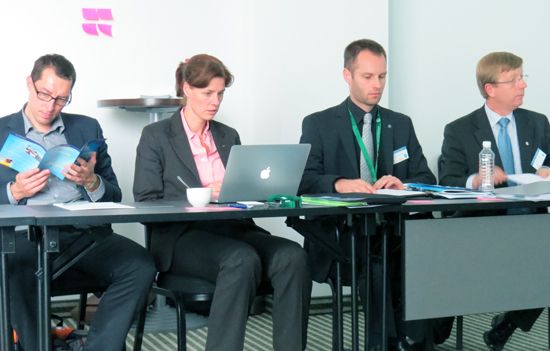EUSA at the EU Mobility in Sport Workshop

The Consortium composed of the European Observatoire of Sport and Employment (EOSE), Sport and Citizenship (S&C) and Catholic University of Louvain (UCL) was appointed by the Sport Unit of the Directorate-General Education and Culture (DG EAC) to carry out a feasibility study on possible future mobility measures for sport in the EU. One of the last steps of the initiative was a mobility study workshop, held in Vilnius, Lithuania on October 1, 2013.
The expected outcome of this study is to develop a set of detailed recommendations for the European Commission in terms of whether funding for sport mobility measures is necessary, and if judged necessary, to provide criteria and options on how the funding should be organised and structured in the new EU programme for Education, Training, Youth and Sport “ERASMUS+”, which will start in early 2014.

So far, an analysis of the current European funded Learning Mobility opportunities and a European-wide consultation has been carried out. At the workshop, highlights of the survey were offered, with a few case studies and good practice presented. Participants then discussed about the future programmes and special circumstances when it comes to mobility in sport. EUSA was represented at the workshop by Mr Andrej Pisl, Communications Manager.

One of the most important outcomes mentioned by respondents why they are or would be involved in EU funded learning mobility opportunities are: personal development of individuals (95,1%), acquiring new skills (94,8%), experiencing other national sports systems (92,8%) and accessing expertise not available in home countries (90,1%). A majority of respondents expressed interest to be involved in EU funded learning mobility programs in the future as well.

Apart from representatives of the consortium, the array of participants included representatives from several institutions and organisations, including EAS (The Dual Career Network), EBU (European Boxing Union), ECC (European Coaching Council), EHF (European Handball Federation), EHF (European Hockey Federation), ESN (Erasmus Student Network), EU ATHLETES & FIFpro division Europe, EUSA (European University Sports Association), European Commission (Sport Unit), IOC (International Olympic Committee, Athletes’ Commission), IPC (International Paralympic Committee), ISCA (International Sport and Culture Association), Streetfootballworld and UEFA (Union of European Football Associations).
For an overview of the study, please see EOSE website.
